Closing the gaps in observation-based estimates of air–sea carbon fluxes (June 20)
Co-chairs: Galen McKinley (Columbia University, Lamont Doherty Earth Observatory), Peter Landschützer (Max Planck Institute for Meteorology), Tim DeVries (UCSB)
Recent studies have applied novel statistical and machine-learning methods to in situ surface ocean carbon dioxide (CO2) observations to estimate the ocean carbon sink. These observation-based estimates, however, rely on extensive interpolation of limited observations, and inconsistencies exist regarding the ocean area covered and the integration of coastal systems. An OCB Working Group was formed in 2020 to address these issues. This session will summarize several major achievements in mapping the open and coastal ocean air-sea CO2 flux from observations. It will also present new approaches in observations and synthesis that are improving understanding of the contemporary ocean carbon sink and its variability, drawing from multiple lines of evidence from the ocean surface to interior.
Confirmed speakers for this session include Peter Landschützer (MPI), Galen McKinley (LDEO), Lydi Keppler (SIO), Ray Najjar (PSU), Seth Bushinsky (UH), and Adrienne Sutton (NOAA/PMEL).
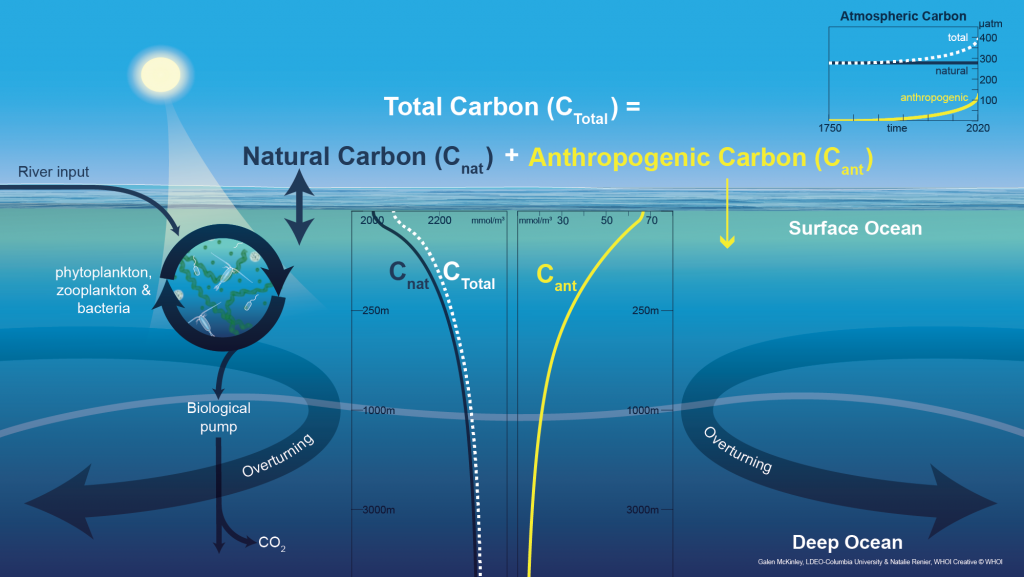
Tidal Carbon Exports from Coastal Wetlands as a Significant Component of Blue Carbon Sequestration (June 22)
Co-chairs: Aleck Wang (WHOI), Jaime Palter (URI), Maria Tzortziou (CUNY/CCNY) Xinping Hu (TAMUCC), Jeff Bowman (SIO)
Coastal wetlands export the majority of their fixed CO2 to coastal waters in the forms of inorganic and organic carbon and alkalinity through tidal exchange. It is argued that a significant portion of this exported carbon may be stored in the ocean or marine sediments with a residence time of thousands of years or longer. Thus, such lateral exports should be accounted as part of blue carbon in coastal wetlands. This potentially increases the current coastal blue carbon capacity by several fold. Yet, methodological constraints limit knowledge of the flux, and significant unknowns remain. This session will present the latest developments in evaluating lateral carbon flux from tidal wetlands and the long-term fate of exported carbon, in the lens of Carbon Dioxide Removal strategies.
Confirmed speakers for this session include: Isaac Santos (Univ. Gothenburg), Amanda Spivak (UGA), Patty Oikawa (CSU, East Bay), Z. Aleck Wang (WHOI), and Kevin Kroeger (USGS).
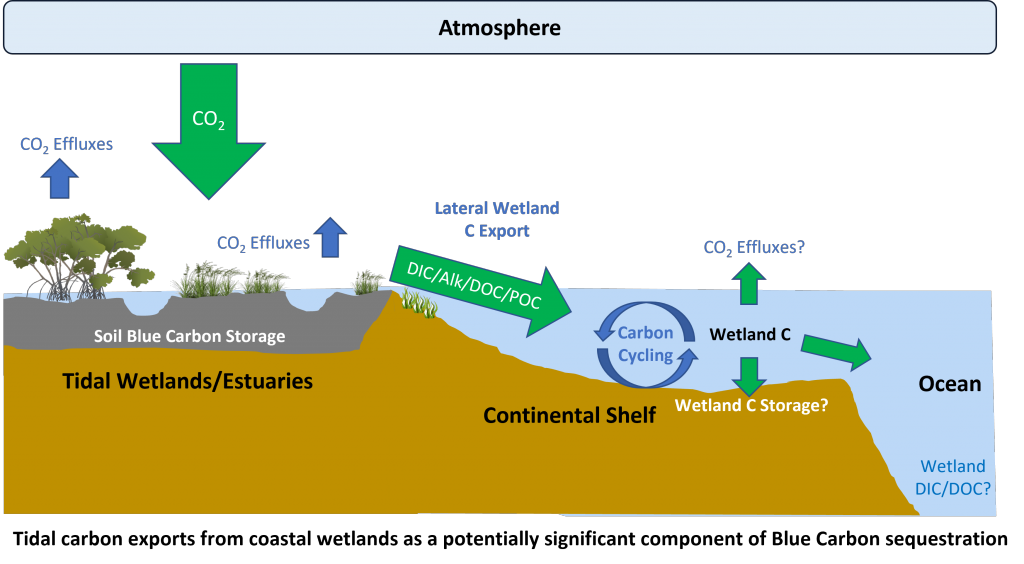
Extreme ocean events (June 20)
Co-chairs: Patrick Rafter (UCI), Victoria Coles (VIMS), Randie Bundy (UW)
Global warming is causing long-term changes to both the coastal and open ocean, but it is also increasing the frequency of “extreme” events such as marine heat waves, deoxygenation, and more. This session will first provide an overview of extreme ocean events, followed by an in-depth examination of coastal and open ocean events. Analogous events from the geologic record will also be used as context for modern extreme ocean events.
Confirmed speakers for this session include: Nicolas Gruber (ETH Zurich, virtual), Pincelli Hull (Yale), Greg Britten (MIT), and Regina Rodriguez (Federal University of Santa Catarina, Brazil).
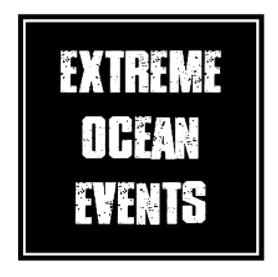
Coastal observing systems to understand and predict ecosystem changes (June 23)
Co-chairs: Charlie Stock (NOAA GFDL), Dreux Chappell (ODU), Jeff Bowman (SIO), Susanne Craig (NASA GSFC)
Coastal waters are a small fraction of the global ocean, yet their importance far outweighs their modest area. The “Living Marine Resources” within verdant coastal ecosystems support the majority of global fisheries catches and are crucial to coastal economies and communities. Multiple potential stressors, including climate change, ocean acidification, and increasing nutrient inputs from growing coastal populations have put these ecosystems and communities at risk. A robust capacity to observe and monitor coastal ocean physics, biogeochemistry, and plankton communities is needed to understand, anticipate and act on coastal ecosystem change. Coastal environments, however, pose formidable challenges to monitoring efforts. The optical complexity of coastal waters challenges the interpretation of remote sensing data. Strong currents, shallow water, and high vessel traffic prevent large-scale float deployments that are succeeding in mapping the three dimension physical and biogeochemical environment in the open ocean. Complex coastlines and dynamic circulation hinders efforts to relate sparse mooring and shipboard measurements to large-scale patterns of change.
This session will address advances in coastal observing that can help us meet the challenge of monitoring the physical and biogeochemical state of ecosystems during this period of unprecedented change. It will highlight the latest advances in observational technologies, and discuss what is needed to provide a robust capacity to track and respond to ecosystem trends, and what is needed to understand the complex ecosystem dynamics.
Confirmed speakers for this session include: Jon Hare (NOAA/NMFS), Susan Wijffels (WHOI), Susanne Craig (NASA GSFC), Grace Saba (Rutgers), Adrienne Sutton (NOAA/PMEL), Z. Aleck Wang (WHOI), and Clarissa Anderson (SIO/SCCOOS).
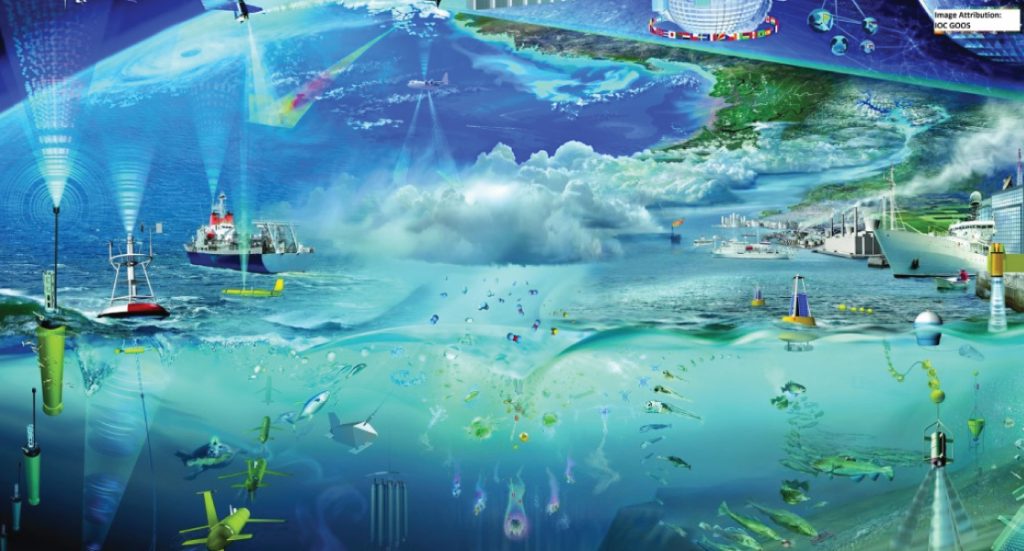
Our Evolving Understanding of Biologically Mediated Carbon Export (June 21)
Co-chairs: Susanne Menden-Deuer (URI), Emily Osborne (NOAA AOML), Seth Bushinsky (UH)
We will review our current understanding of biologically mediated C export processes, highlight recent results that might challenge prior assumptions and work together towards a research agenda that will empower our community to contribute to understanding and preparing for anthropogenic effects on the biological C pump and possible feedback mechanisms.
Confirmed speakers for this session include: David Siegel (UCSB), Charlotte Laufkötter (Univ. Bern), Colleen Durkin (MBARI), Debbie Steinberg (VIMS), Martina Doblin (Univ. Technology Sydney), Jessica Luo (NOAA/GFDL), Heather McNair (URI), Tristian Cordier (Univ. Geneva, virtual), Grace Saba (Rutgers), and Flavia Boscolo-Galazzo (Cardiff Univ.).
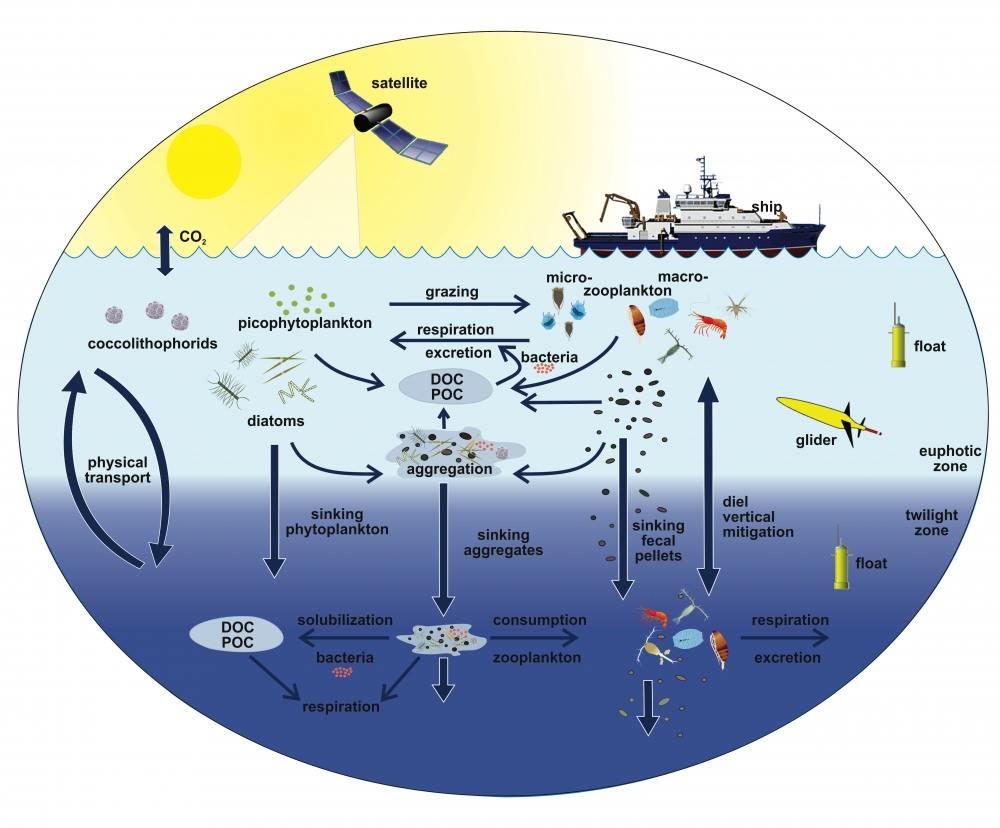
Plenary session figure credits:
Filling Gaps - Design: Natalie Renier, WHOI Creative ©WHOI; Concept: Galen McKinley, Columbia Univ., LDEO; Funding: OCB Project Office (NSF, NASA)
Coastal Carbon - original figure by session co-chairs
Extreme Events - original image by session co-chairs
Coastal obs - Glynn Gorick, Global Ocean Observing System (IOC-GOOS), used with permission.
Biological Pump - EXPORTS diagram (D. Steinburg from Siegel et al (2016) Prediction of the Export and Fate of Global Ocean Net Primary Production: The EXPORTS Science Plan. Front. Mar.Sci.3:22. doi: 10.3389/fmars.2016.00022



